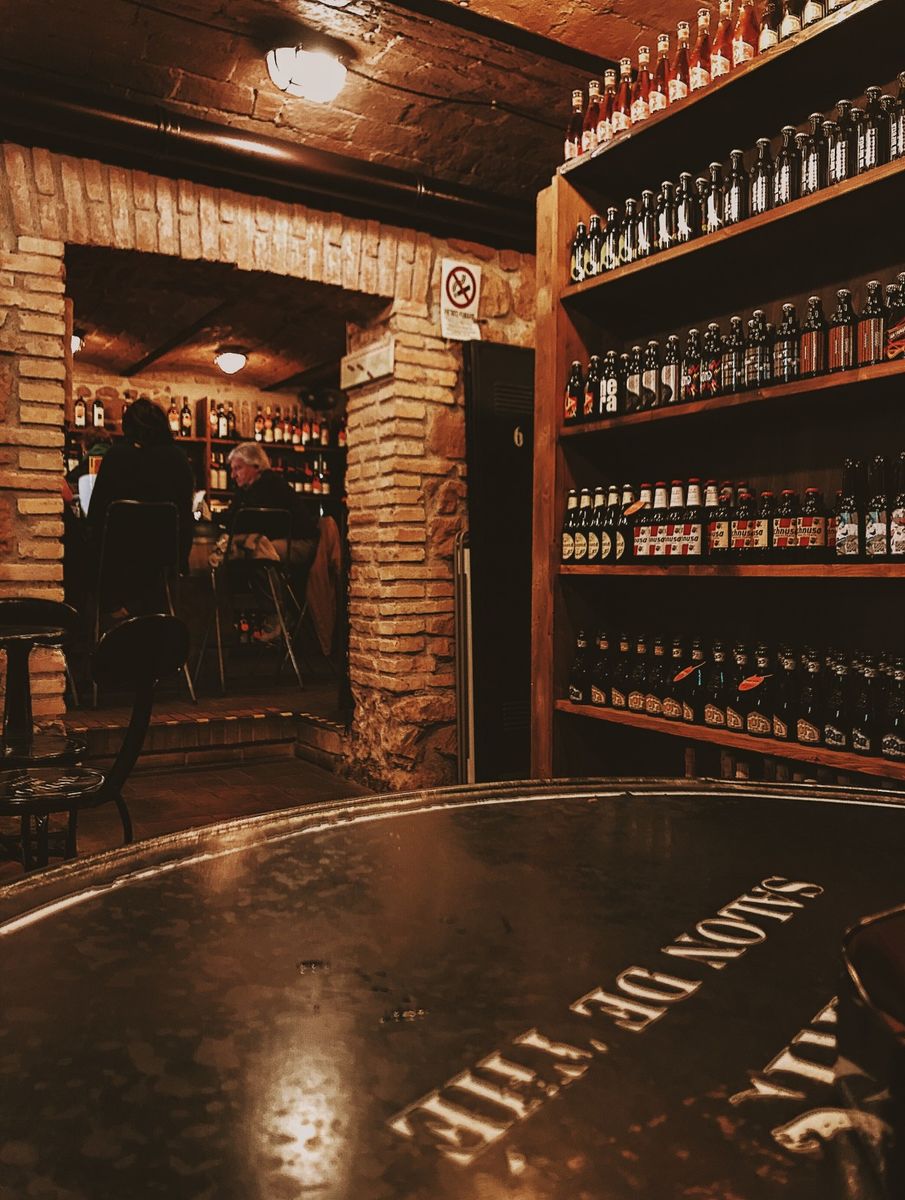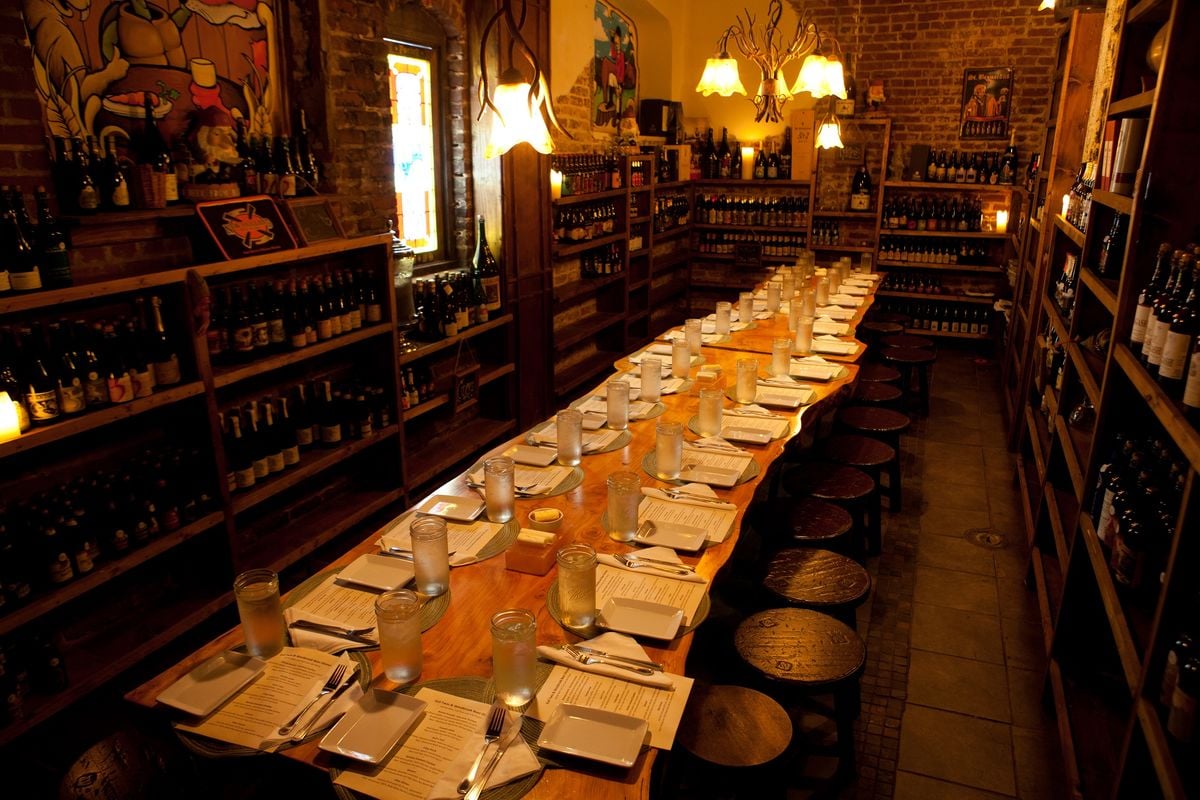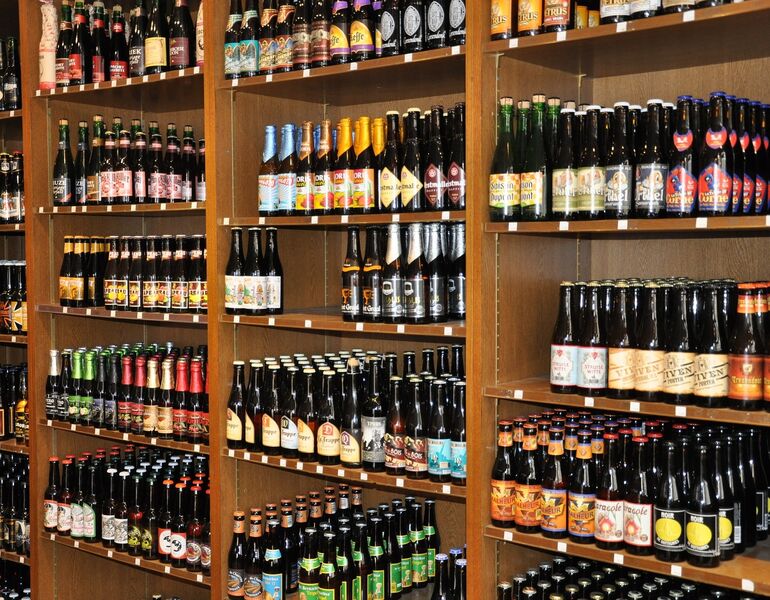Start 14-Day Trial Subscription
*No credit card required

Tips for Aging Beer
When most people think of aging any kind of alcohol, the first thought is wine. But aging alcohol is not just limited to wine. While a majority of beer is meant to be consumed shortly after being brewed (hence the reason for expiration dates on bottles and cans) there are certain merits to aging beer as well. Though this is a relatively new concept, as the growth and interest in craft beer is much newer than wine, aging beer can reap tremendous benefits if done correctly. When you age beer, some flavors can subside, letting others shine through for a new and different taste altogether. We hope you enjoy the following tips for aging beer so you can to next the next step in becoming a true beer connoisseur.
There is much discussion and rhetoric that flies around about the process of aging beer. Some will argue that is a fantastic way to enjoy your beer, while others eschew the mere mention of aging beer as they would argue that beer is meant to be consumed as soon as it is produced. But the good news is that, in the end, it is a personal choice and up to the drinker whether they choose to imbibe fresh or let it mellow. Also, as different people prefer different flavors, some may truly enjoy the aged beer taste, while others may find it unpleasant.
Why would you want to age beer? Or in other words, what benefit does aging have? Interesting to note that beer does not deepen or develop in flavor as it ages. In fact, the opposite occurs. What happens is that the strong flavors tend to lessen and the more understated flavors and characteristics of the beer are brought forward as the beer ages. This interesting development process is the exact antithesis of how wine ages.
Beer is relatively inexpensive, so if you decide that you want to try aging beers, you really wouldn’t have to invest much at all. And in more good news, you don’t have to have any fancy (read: expensive) equipment or have any special space built into your home to age beer. To get started aging beer you’ll just need a cool, dark space. Another good thing about aging beer is that you don’t have to wait an exorbitant amount of time for the beer to develop before you can enjoy it. With wine, some connoisseurs wait decades, but with beer it is just a fraction of the time – maybe a year at most. More on that later. But first let’s discuss the kinds of beers you can and cannot age, as not all beer was meant to be aged.

Beer does not deepen or develop in flavor as it ages. In fact, the opposite occurs. What happens is that the strong flavors tend to lessen and the more understated flavors and characteristics of the beer are brought forward as the beer ages. This interesting development process is the exact antithesis of how wine ages.
What are the best beer styles to age?
Higher-ABV beers and beers that have been aged in casks tend to do well when aged. Remember earlier we said that when you age beer, some flavors lighten up and the other characteristics come forward? So, when you age a beer that was previously aged in casks, like whiskey, for example, that flavor might become more prominent. The same with sour beers that have a fruit infusion. That flavor of the fruit might come through more over time via aging.
A note on stouts: “Sometimes a stout can be too “hot” meaning if it’s barrel-aged, there’s a good bit of bourbon burn in it where it needs some mellowing out to enhance the flavors.” - Brij Patel, owner, Sprayberry Bottle Shop, Marietta, GA
Type of Beers Ideal for Aging
- Barrel-aged beers/Stouts
- High-ABV beers
- Sour beers
If you are new to beer aging and enjoy sour beers, they are a good beer to experiment with the aging process and you will easily see how flavors can come through. HOMES Brewery in Ann Arbor, Michigan brews many IPAs as well as sour beers.
According to Homes head brewer Nick Panchamé: “Sour beers are more flexible with age and temperature ranges. We still fruit these beers pretty heavily so fruit flavor will change over time. On the other hand, they are fermented with wild yeast and bacteria so funk will develop in the bottle even more over time. Cellar temperature is ideal for aging these beers (50-60 degrees Fahrenheit). These beers can develop some interesting flavors up to 4 years after bottling!”
What beers should you NOT age?
The general rule of thumb when it comes to aging beer is the more hoppy it is, the less you would want to age it. So, when you get that IPA drink it sooner rather than later. The same goes for Pilsners and low-ABV beers. Don’t let them hang around for much time at all. Drink them right away as they will be best when they are the freshest.
It is not recommended to age the following types of beers:
- IPAs
- Pilsners
- Low ABV beers
How does aging affect beer flavor?
“It's best to remember that beer is food. So generally fresher is better, especially with lighter, hoppier styles. Aging affects beer mainly through oxidation reactions. A process very similar to other foods going stale,” said Ron Jeffries, Head Brewer at Jolly Pumpkin Artisan Ales in Ann Arbor, Michigan.
“Just like some people prefer their Peeps stale, some people prefer these flavors in beer,” Harper continued. “What can these flavors be like? Well, at their best, caramel, toffee, sherry, bready, dark fruit, currants, cherries, and the like. At their worst, paper and wet cardboard. Aging beer will also darken the color. Again, through oxidation.”
Tip: When you buy a six pack, taste one right away so you have a baseline to judge how well the beer ages.
Is it time to start a beer cellar?
Cellar is a bit fancy for our purposes. The term cellaring beer really just refers to storing or aging beer. But the word “cellar” implies you have some fancy space in your basement set aside for such purchase and perhaps a smoking jacket and cigar ready for an auspicious occasion when you would enjoy the beer. But this is often not the case for beer enthusiasts or beer lovers that want to embark on the process of aging beer. In fact, many will use the back of a spare closet to age their beer.
“Aging at temps of 50-55 is usually ideal as well as keeping it in a cool dry area, like a pantry or a cool basement in the house,” said Brij Patel, Owner of Sprayberry Bottle Shop in Marietta, GA. “A closet wouldn’t be as ideal in south (with its high humidity and heat in the summer months). A cooler would be recommended or a cellar-controlled room just like wine.”
Pro Tip: Definitely avoid changing temperatures often or at all as this will really affect (and could even ruin) the aging the process. So, make sure that whenever you decide to start the cellaring process, the temperature you store your beer at is consistent.
What is the perfect aging scenario for beer?
The perfect aging scenario would include a cool, dark place for storage. Consistency is important here. There should be no light and consistent cool temperatures throughout storage. The beer cannot be exposed to higher temperatures as this change will be a detriment to the aging process.
Storing your beer for about 6 months to a year is the best, but it is important to remember that aging beer is more of an art than a science. Also, different types of beers will age differently. For example, a stout may taste excellent after just 6 months, whereas a sour beer may require a year before those fruity flavor notes really shine through.
Some experts also say to taste one of the beers (assuming you bought a six pack) at about 6 months. If it tastes good keep storing it. If after the next “taste test” it doesn’t taste as good as the time before, then it is time to drink those beers.
Final thoughts on aging beer:
Aging beer is still a relatively new concept in the beer community. Remember that aging beer is different than aging wine in that flavors will not intensify but rather mellow – bringing other flavor profiles forward. While the conditions for cellaring or aging beer are the same (store in a cool, dark place) the results can vary greatly from beer to beer. And the time for aging varies as well. Some will be great in just six months while other beers could be best after a year or more.
“Given the varying amounts of oxygen present in the beer at packaging, even controlled spaces can lead to differences in the aged beer. Always best to remember aging beer is always a guess, and a risk,” Jeffries noted.
The most important thing to remember is taste is subjective, and, in the end, aging beer is all about personal preference. While one person may love the fruity flavor of a sour that develops over time, another person may like the fruit to be more in the background of the overall taste.
As long as you meet the conditions of storing beer, have fun with this and treat it as trial and error. If space is limited, it may be fun to get a fellow beer lover to cellar a different type of beer (i.e. one person focuses on barrel-aged brews while another focuses on sours) and see how they differ with age.

In the end, aging beer is all about personal preference. While one person may love the fruity flavor of a sour that develops over time, another person may like the fruit to be more in the background of the overall taste. (Photo Courtesy The Porter Beer Bar)



